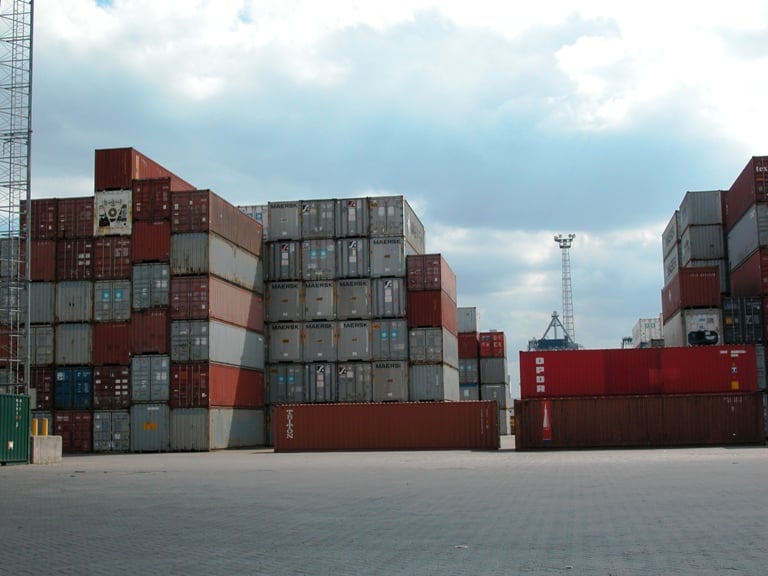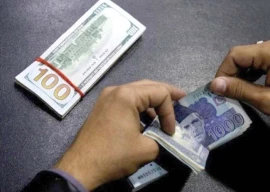
This has motivated global firms to shift manufacturing ‘through outsourcing and offshoring activities’ with an objective to optimise their resources by relocating their processes to various sites scattered globally. What we are witnessing is the disbursement of value chain activities such as design, production, marketing, and distribution.
There has not been much analytical work to quantify the magnitude of Pakistan’s share in the global value change. According to some economists, Pakistan’s participation is minimal, which is an important reason for narrow export basket of the country where textile and clothing have a dominant share.
According to the study by the World Trade Organization, the import content in the export of goods was 20% and in 2010 it increased to 40%. This is an increasing trend and the import content in the exports will be as much as 60% in the next decade.
What is important now for countries is to have efficient services to be able to integrate with the global value chain. Services such as information technology, logistic, procurement, customer services and marketing will be important to narrow the distance between businesses and markets in turn, creating enhanced opportunities through trade.
The policymakers and trade professionals are trying to comprehend this emerging issue so as to enact policies to support their firms leverage global value chains. On the one hand, political economy issues are pressuring to enhance tariffs to protect domestic industry and jobs. On the other hand, enhanced tariffs will make exports less competitive and undermine their presence in the global value chain.
The WTO with the collaboration of Organisation for Economic Co-operation and Development (OECD) has started developing the World Input Output Database that would compute the extent of value-addition in international trade. This would become an important source in policy formulation for informed decision-making.
The argument of the infant industries is close to the heart of policymakers in developing countries and Pakistan is no exception. We have seen consistent efforts and rationale for trade protectionism to support ‘nascent industry’. We have been told that due to economies of scale and lack of technological development, the protection to domestic industry is necessary. The industrialised countries have developed their industrial base behind tariff curtains. However, in reality, we have witnessed ‘rent-seeking’ behaviour of national firms that profited by producing low quality goods and selling them at inflated prices.
In developed economies, policymakers have created an enabling regulatory environment for companies to outsource inputs as well as manufacturing to different locations overseas. This has considerably reduced the manufacturing cost and enhanced overall profit margins for companies. In return, companies have reinvested enhanced profits into research and development (R&D) and innovation to maintain their leadership and competitiveness.
The manufacturing process of an iPhone, a popular handheld device by Apple, is a noteworthy example. The iPhone is manufactured in China and in the international trade statistics; it is shown as China’s exports. The sale of iPhones is reflected in the account books of Apple which is incorporated in US. However, if we dig deeper into the value chain of iPhones, the component are sourced from 30 countries scattered across Asia, European Union and Americans where margins of some of the suppliers are much more than the manufacturing of the final product. The international fragmentation of the production process of the iPhone is a powerful tool for Apple to maintain its competitiveness.
There was an interesting news report recently that policymakers in Pakistan were considering the target of achieving close to 100% localisation for car assemblers. There were also media reports that serious consideration were also given to support the assembly of smart phones in Pakistan. In the initial phase, tariffs on smart phones would be enhanced to compel the companies to establish screwdriver assembly facilities and subsequently target localisation of component and spares as was the case with auto manufacturers.
This policy did not seem in line with the popular wisdom where some of the countries in Asia Pacific such as China, Malaysia, Philippine and Singapore generated tremendous value by specialising in a particular segment of the production process and integrating efficiently with the global value chain.
The changing patterns of international trade depict that goods and services are ‘Made in the World’ and the states compete on their roles in the value chain. It is the competitiveness of tasks and businesses rather specific products.
The writer is a civil servant with 20 years of experience on issues related to Pakistan’s trade and development
Published in The Express Tribune, April 13th, 2015.
Like Business on Facebook, follow @TribuneBiz on Twitter to stay informed and join in the conversation.
1731329418-0/BeFunky-collage-(39)1731329418-0-405x300.webp)
















COMMENTS (3)
Comments are moderated and generally will be posted if they are on-topic and not abusive.
For more information, please see our Comments FAQ